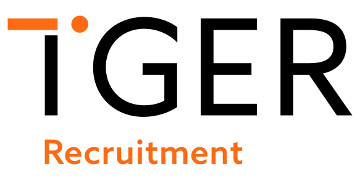The survey of 2,000 UK employees showed that 64% of respondents aged between 18 and 34 reported health cover as being their most valued job benefit, compared with 46% of people aged over 55.
Almost eight in 10 (78%) younger workers reported that health cover contributed to them staying at their organisation, while 59% said that health cover was one of the reasons they joined their organisation. Findings were published yesterday (8 August).
Different generations often value different benefits, explained Craig Williams, employee benefits director at benefits consultancy Broadstone, speaking to HR magazine.
He added: “Younger generations typically prioritise digital-first benefits like tech-savvy wellness programmes, financial wellness tools, and continuous learning opportunities. They also value diversity and inclusion initiatives and expect flexible, remote work options."
Less than a third (30%) of HR professionals thought communicating health benefits helped to attract new employees, Simplyhealth research revealed, and 29% said they thought it helped them retain their current workforce.
Earlier (June) research from the recruitment firm ManpowerGroup revealed that 96% of employers struggled to engage workers with fewer than 10 years of work, including Gen Z and Millennial workers.
Jeanette Cook, principal strategic consultant at management consultancy Aon, told HR magazine: “An ageing workforce has greater risks of ill-health so they have a focus around preventative care to support healthy ageing, with access to regular health check-ups, hearing and visual assessments being valued."
Read more: Employers trying and failing to hire Gen Z
Simplyhealth's research found that younger workers were more likely to take time off work than older workers; 71% attributed the time they had taken off work in the last 12 months to anxiety, compared with 32% of over-55s.
A third (33%) of 500 HR professionals also surveyed by Simplyhealth found that employers reported the rise of mental health days as one of the biggest problems in their organisation.
Cook added: “Younger generations are documented to suffer more from poor mental health than older employees. Ensuring easy access to employee assistance programmes (EAP) or mental health first aiders is especially important for this population.
“Older generations value pension planning and retirement advice. In contrast, Millennials have been reported to have a higher debt-to-income ratio than previous generations and struggle with day-to-day financial survival.”
Rather than creating personalised benefits for different generations, however, employers should ensure benefits account for employees’ different needs, commented Nebel Crowhurst, chief people officer at employee experience platform Reward Gateway Edenred.
Speaking to HR magazine, she said: “The same benefits should be offered to all employees, regardless of which generation they’re from.
“But providing a range of different benefits that cater to different generations should be encouraged and indeed implemented.”
Read more: The new frontier of employee engagement: Personalised benefits
Consulting employees about what benefits would most benefit them could help HR adopt a utilitarian approach, Crowhurst added.
“Businesses need to use data and insights to ensure they are addressing the needs of the workforce, and different generations, in a way that will have the greatest positive impact,” she continued.
“Rewarding Gen Z with benefits that are relevant and personalised to a younger person’s needs is a vital part of integrating them well. That can mean providing employees with financing to buy the latest tech they need and pay it back in monthly instalments from their salary, or allowing staff to expense a taxi home late at night if they find themselves in a potentially vulnerable situation.
“Employees in other generations may not select these benefits, but make them available, and Gen Z will thank you.”
Simplyhealth commissioned Opinium to survey 500 HR decision makers and 2,000 employees in the UK throughout May and June 2024.










